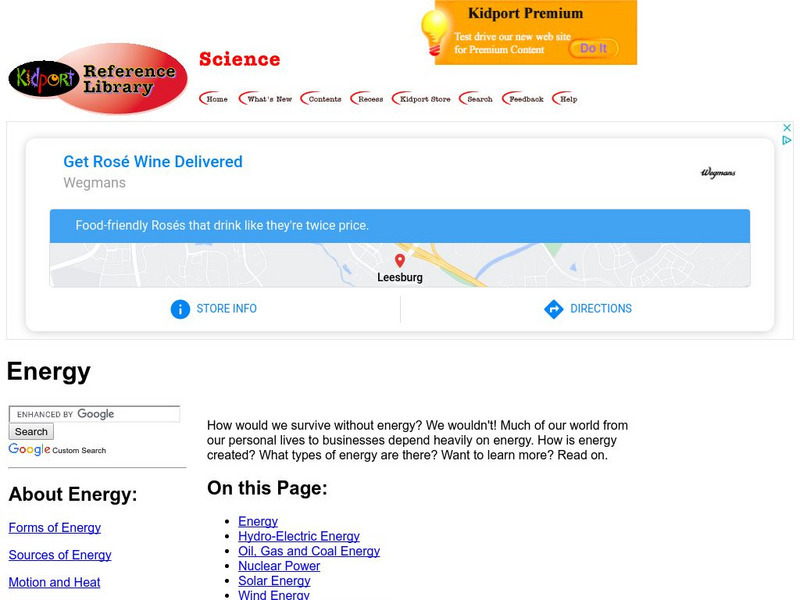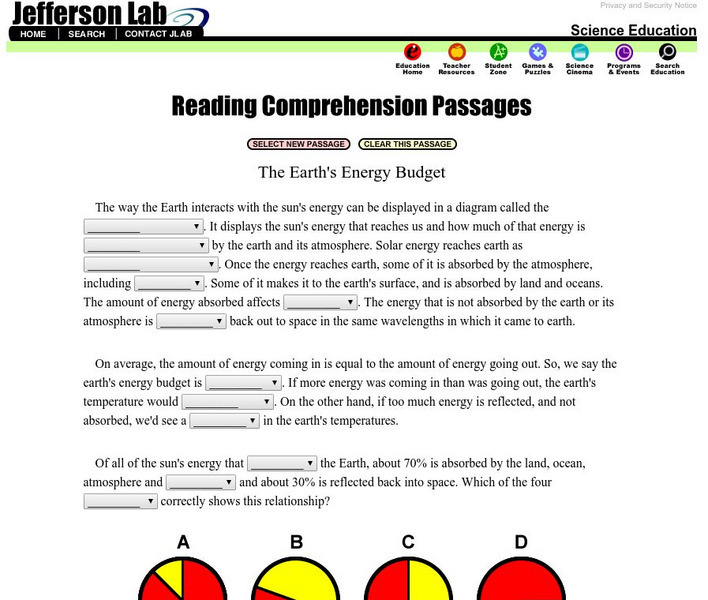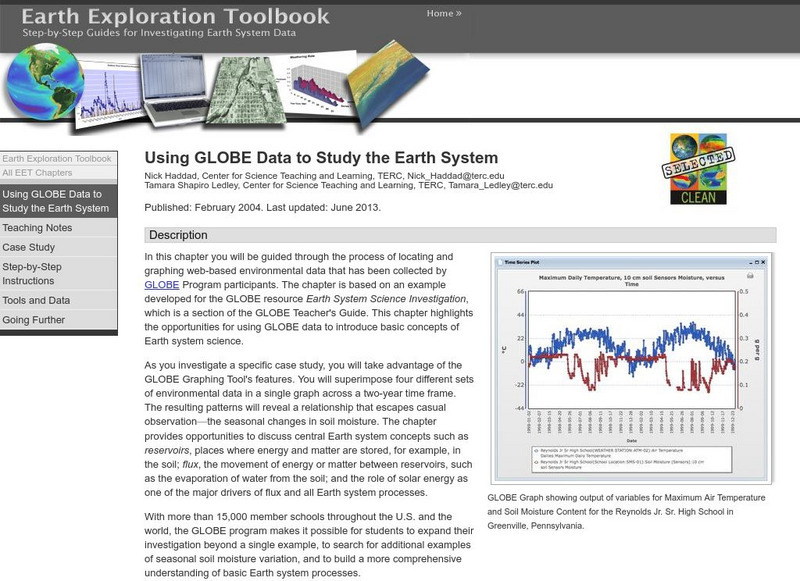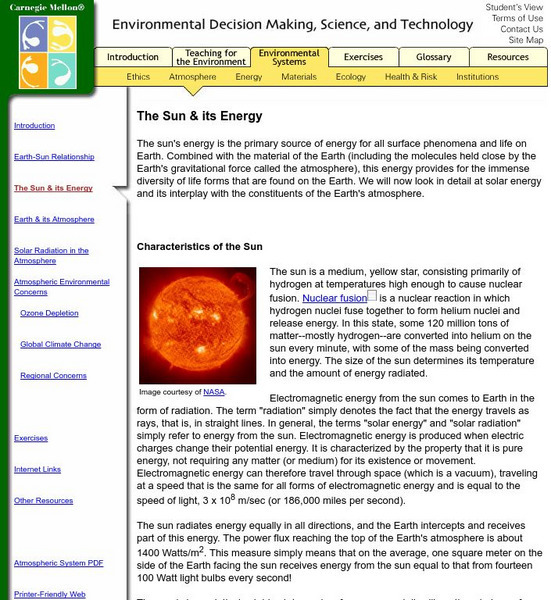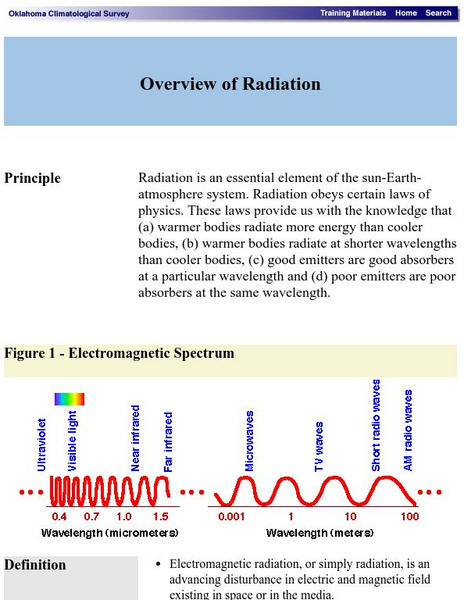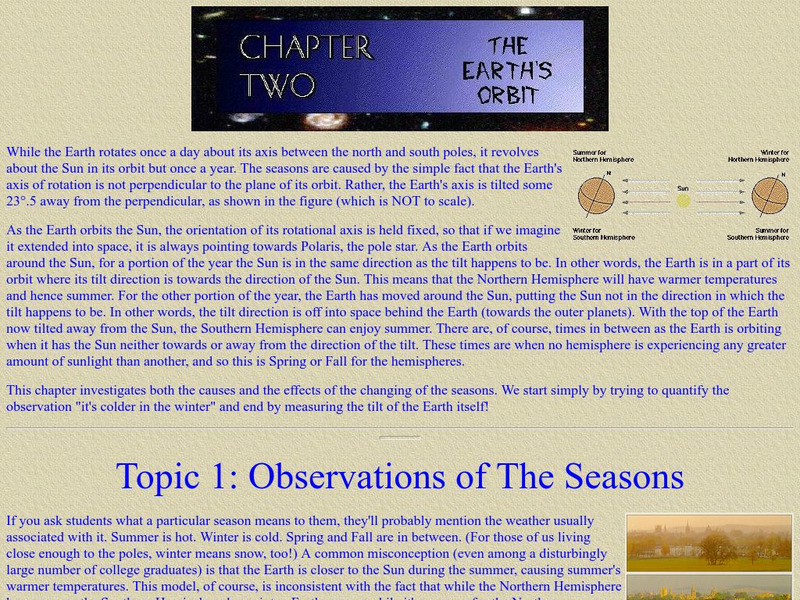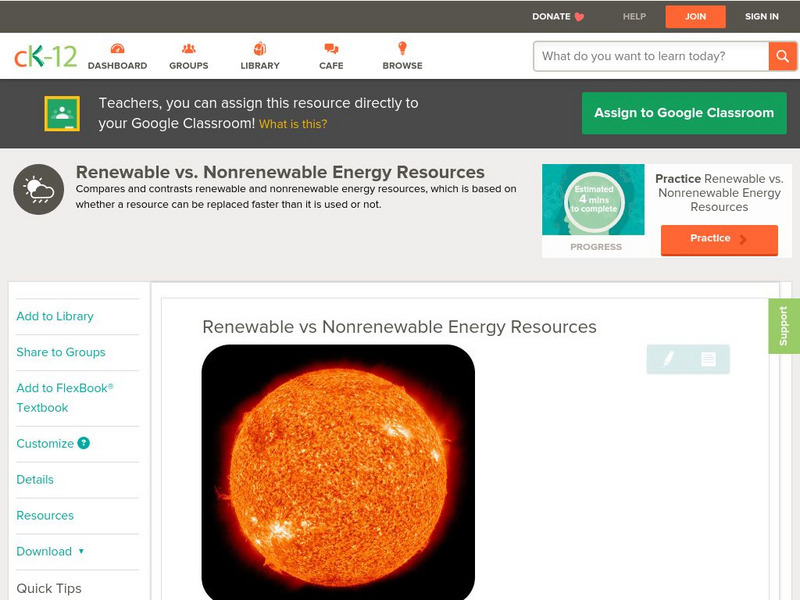Hi, what do you want to do?
Kidport
Kidport Reference Library: Energy
A simple introduction to energy, offering information on hydro-electric energy, fossil fuels, nuclear power, solar energy, and wind energy.
Geography 4 kids
Geography4 Kids: Radiant Energy From the Sun
An introduction to radiant energy that offers a look at the different types of radiation from the sun, the radiation that actually hits Earth, and how the Sun's age will affect the radiation absorbed by Earth. Also, view NASA videos...
Thomas Jefferson National Accelerator Facility
Jefferson Lab: Reading Passages: The Earth's Energy Budget
Read and fill in the blanks of this passage explaining the earth's engergy budget. Each blank has a dropdown menu with choices. When you finish, click CHECK MY ANSWERS. If you pick a wrong answer, the right answer will be displayed along...
Climate Literacy
Clean: Introduction to Earth's Climate
This lesson is an introduction to Earth's climate and covers key principles regarding Earth's unique climate, atmosphere, and regional and temporal climate differences. Students will gain an understanding of how the weather and climate...
NASA
Nasa: Effect of the Sun's Energy on the Ocean and Atmosphere
A project based lesson where students' mission is to conduct a series of tasks that enable them to audit Earth's energy budget and help answer a number of science questions.
Science Education Resource Center at Carleton College
Serc: Using Globe Data to Study the Earth System
This lesson guides students through the process of locating and graphing web-based environmental data that has been collected by GLOBE Program participants. The lesson provides opportunities for using GLOBE data to introduce basic...
NASA
The Earth Sun System
This resource provides some interesting video footage of the Sun. Also included is information about the effects of solar radiation on the Earth's magnetosphere and weather.
CK-12 Foundation
Ck 12: Earth Science: Global Wind Belts
[Free Registration/Login may be required to access all resource tools.] Describes how regional differences in solar radiation create global wind belts.
Geography 4 kids
Geography4 kids.com: Transmitting Energy to the Surface
Take a look at solar energy. What factors affect the energy transmitted from the sun to Earth?
ClassFlow
Class Flow: Energy From the Sun
[Free Registration/Login Required] Energy from the sun causes great things to happen on Earth from the water cycle to wind and waves. This flipchart includes video clips and student assessment.
CK-12 Foundation
Ck 12: Earth Science for Middle School
This digital textbook covers core earth science concepts and includes interactive features, real-world examples, videos, and study guides.
Carnegie Mellon University
Telstar: The Sun and Its Energy
The sun's energy is the primary source of energy for all surface phenomena and life on Earth. Combined with the material of the Earth (including the molecules held close by the Earth's gravitational force called the atmosphere), this...
Carnegie Mellon University
The Sun and Its Energy
The sun's energy is the primary source of energy for all surface phenomena and life on Earth. Combined with the material of the Earth (including the molecules held close by the Earth's gravitational force called the atmosphere), this...
Oklahoma Mesonet
Oklahoma Climatological Survey: Overview of Radiation
This site details what radiation is, the physics of radiation, and radiative transfer as it occurs in nature. Content explores the electromagnetic spectrum, electromagnetic waves, properties of radiation, and solar radiation.
Annenberg Foundation
Annenberg Learner: Journey North: Judy Brophy: The Sun's Daily Cycle
Impressive animated slideshow presentation on the sun's daily cycle and how the sunlight changes hour by hour over the course of a day. Includes a teacher guide with lesson plan ideas and activities.
Science Struck
Science Struck: Examples of Thermal Energy
Describes examples of thermal energy in the natural world from the Sun, the oceans, and the Earth.
Harvard University
Eyes on the Sky, Feet on the Ground: The Earth's Orbit
Students perform many inquiry activities related to Earth's orbit. Included are recording daily temperatures, observing the sun's path over several weeks, tracking sunrise and sunset times, and angle of sunlight. Diagrams make lessons...
NOAA
Noaa: Space Weather Prediction Center: A Primer on Space Weather
The Space Environment Center put together an introduction to our sun and space weather that it creates during it's 11 year weather cycle. Learn about different solar anomalies and the effects they have on earth with pipelines, geologic...
National Geographic
National Geographic: Using Models to Make Predictions
Students investigate the interaction between greenhouse gases, solar radiation, and the Earth's surface and oceans for the impact on global warming. By altering variables, they can project what reduction in greenhouses gases is needed in...
Physics Aviary
Physics Aviary: Solar Flux Lab
This lab is designed to have students investigate the factors that determine the amount of energy collected by a solar panel when the sun light is shining straight down to the ground.
CK-12 Foundation
Ck 12: Earth Science: Renewable vs Non Renewable Energy Resources
[Free Registration/Login may be required to access all resource tools.] Compare and contrasts renewable and non-renewable resources.
Energy4Me
Energy4me: Energy Sources of the World [Ppt]
Learn about the many different energy resources available from our Earth. Find out the pros and cons of each type: both renewable and nonrenewable.
Annenberg Foundation
Annenberg Learner: Planet Earth
A series of seven instructional, hour-long videos presenting Earth-science topics such as plate tectonics, oceans, climate changes, natural resources, the Sun, and the future of our planet. Closed captioning option provided for each video.
King's Centre for Visualization in Science
Explaining Climate Change: Lesson 4: Climate: A Balancing Act
How does the Earth's energy balance regulate climate? This is the fourth lesson in a series of learning modules on the topic of climate change. This lesson explores how different factors can impact the amount of energy that enters and...





